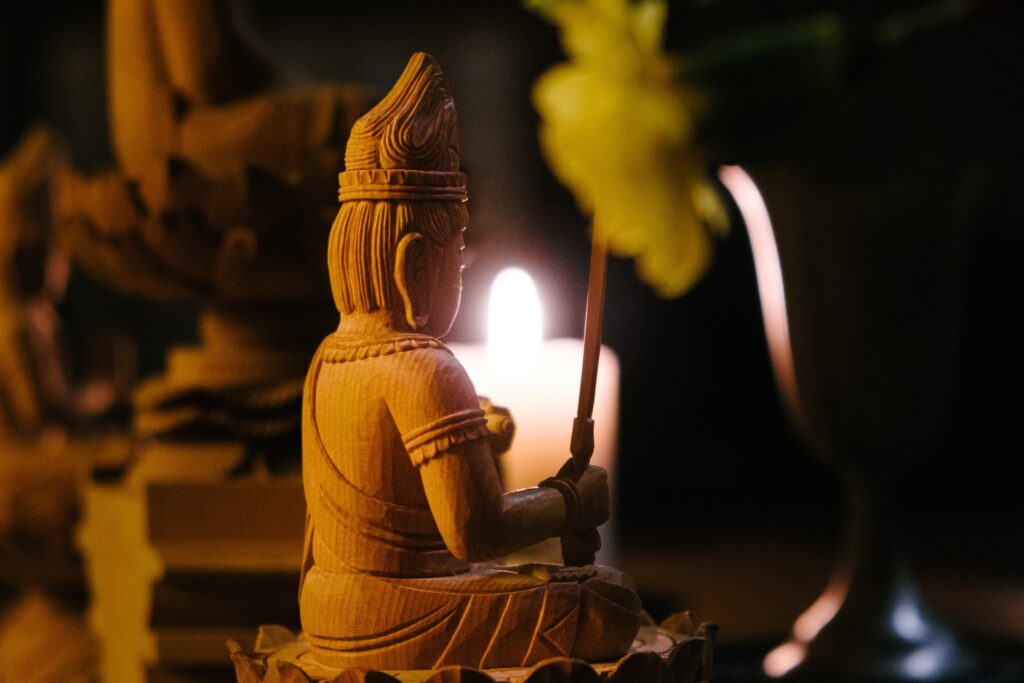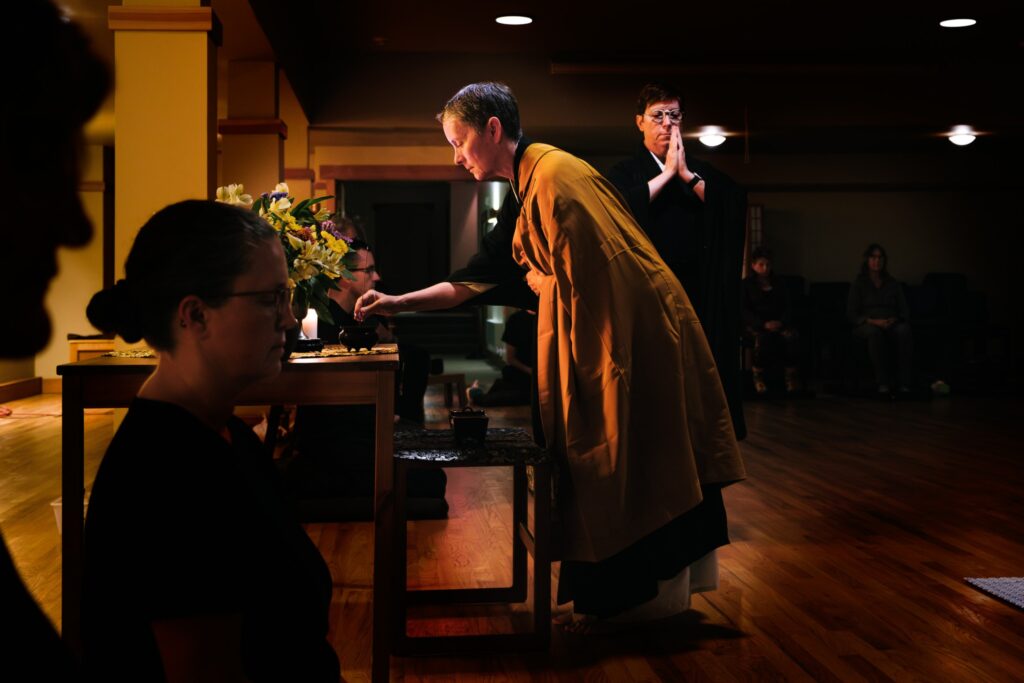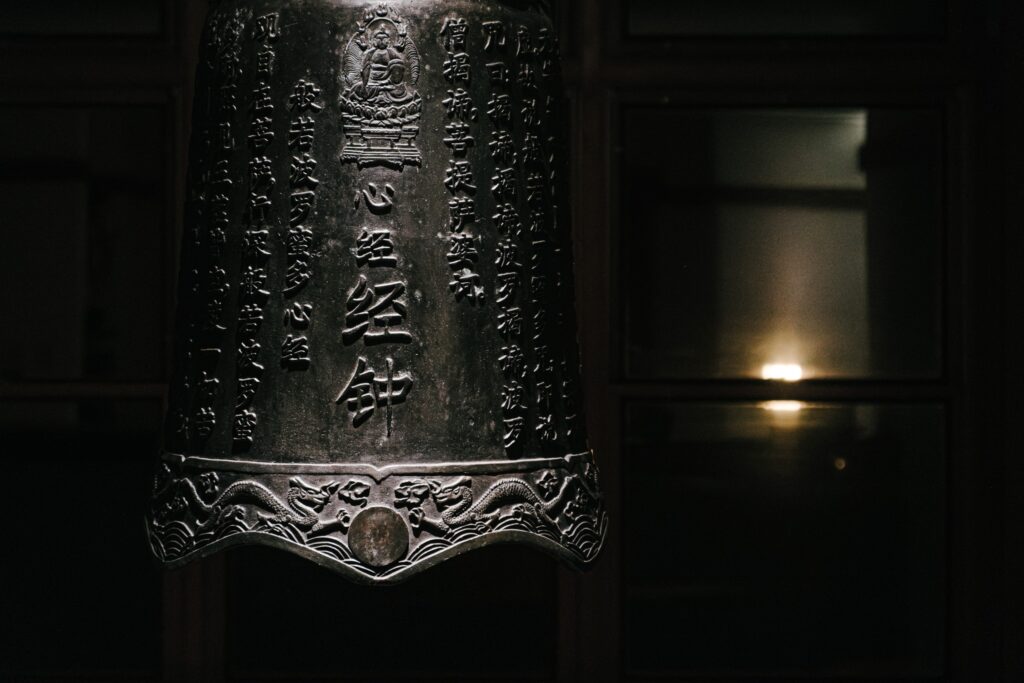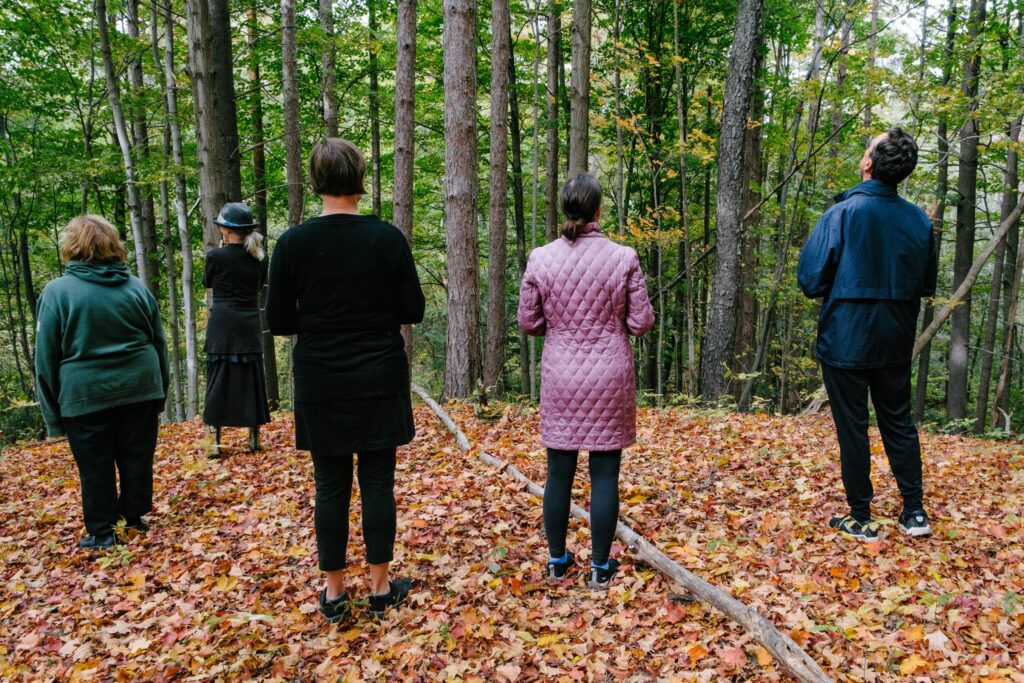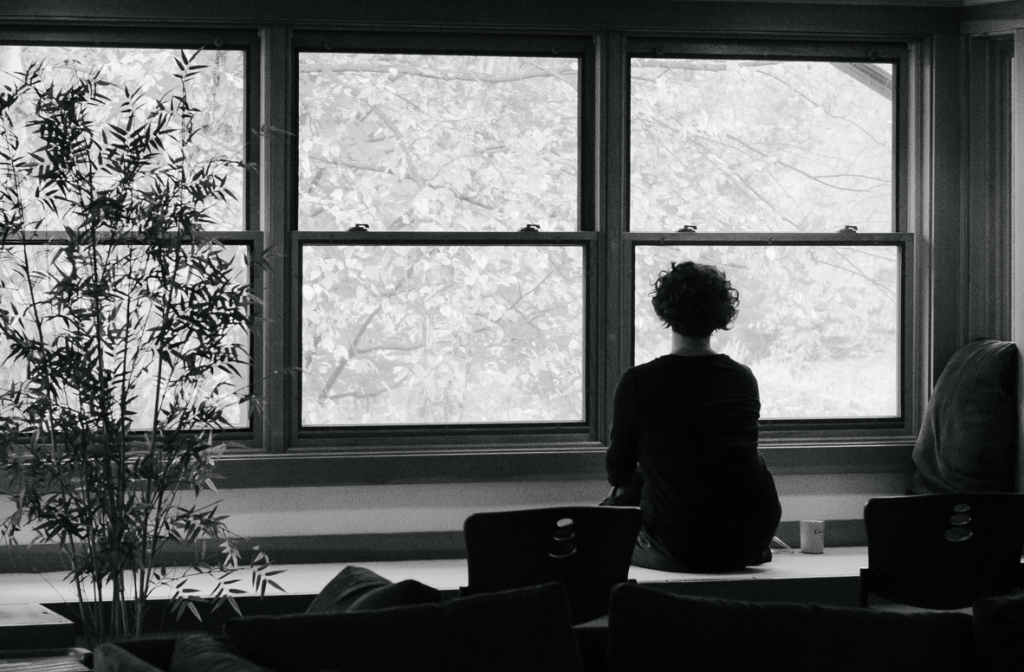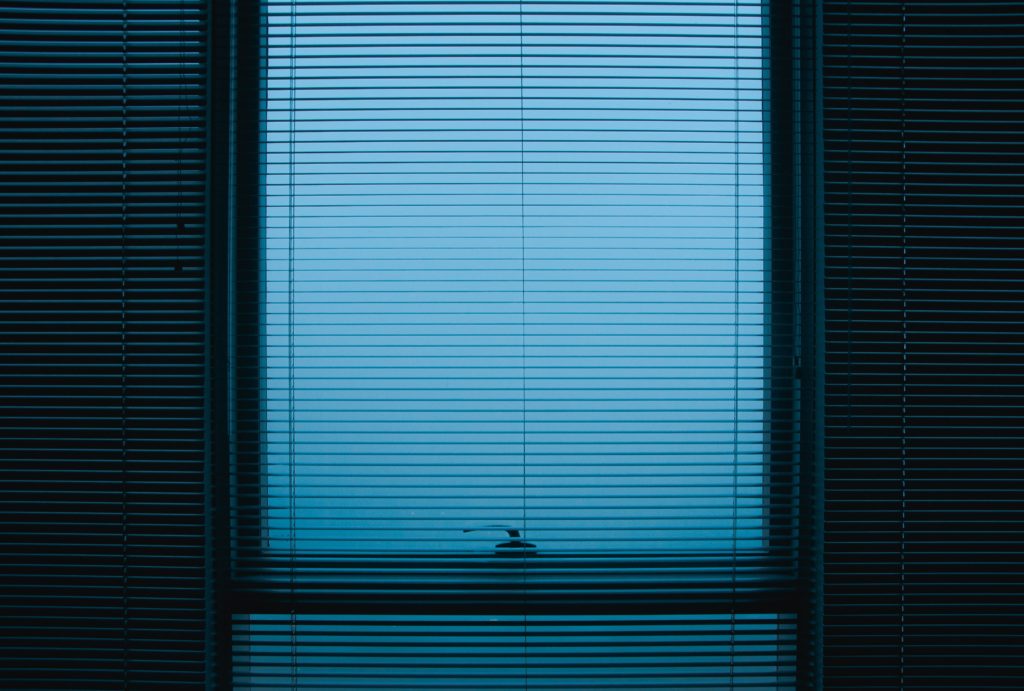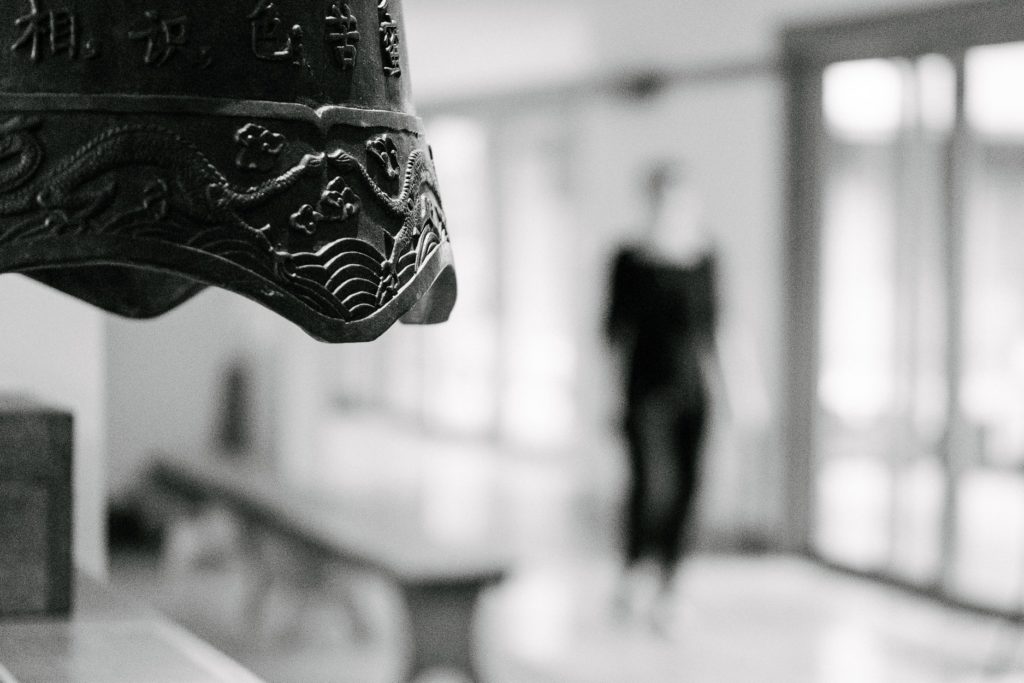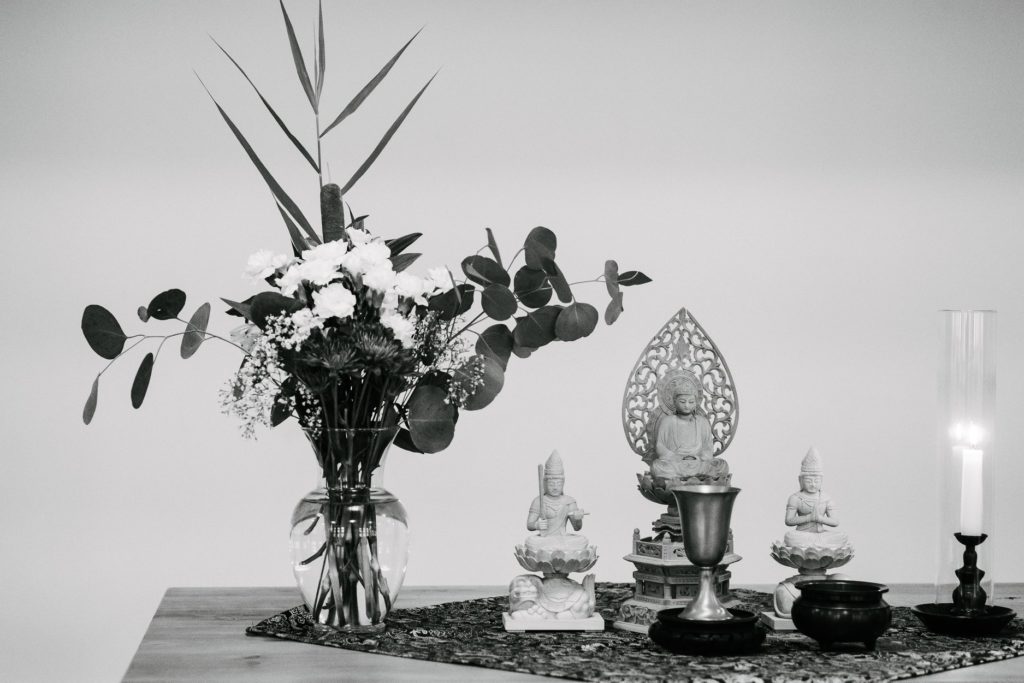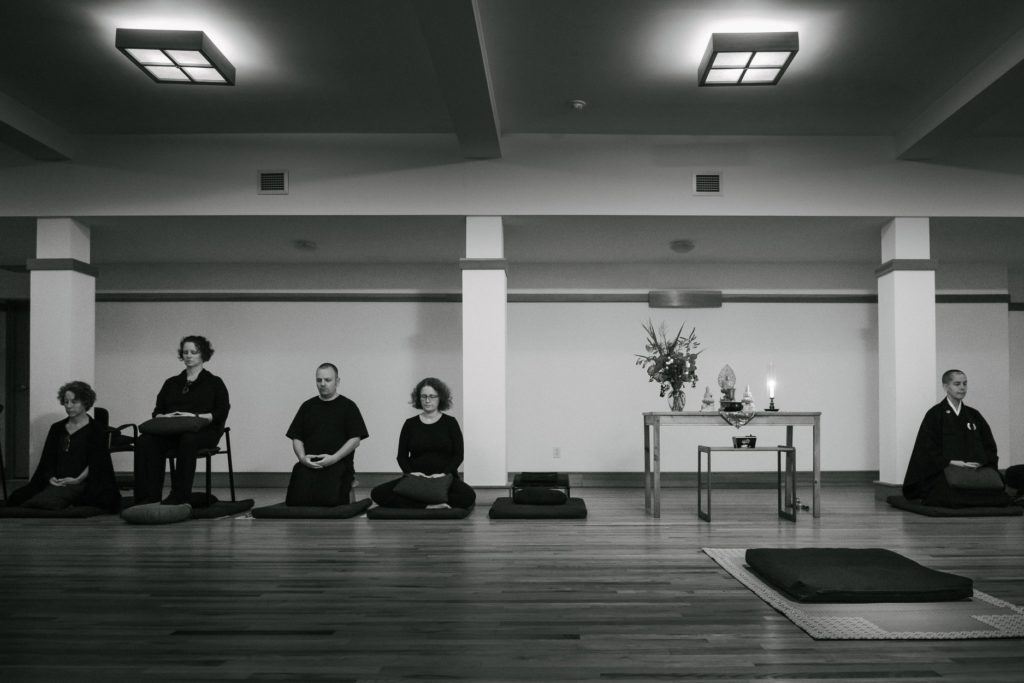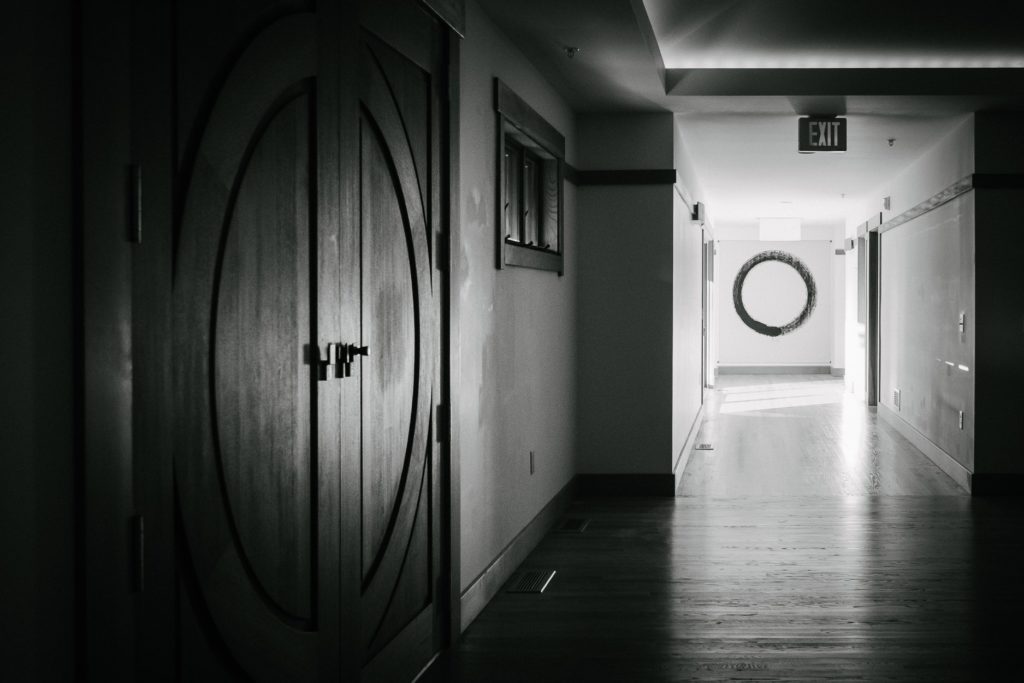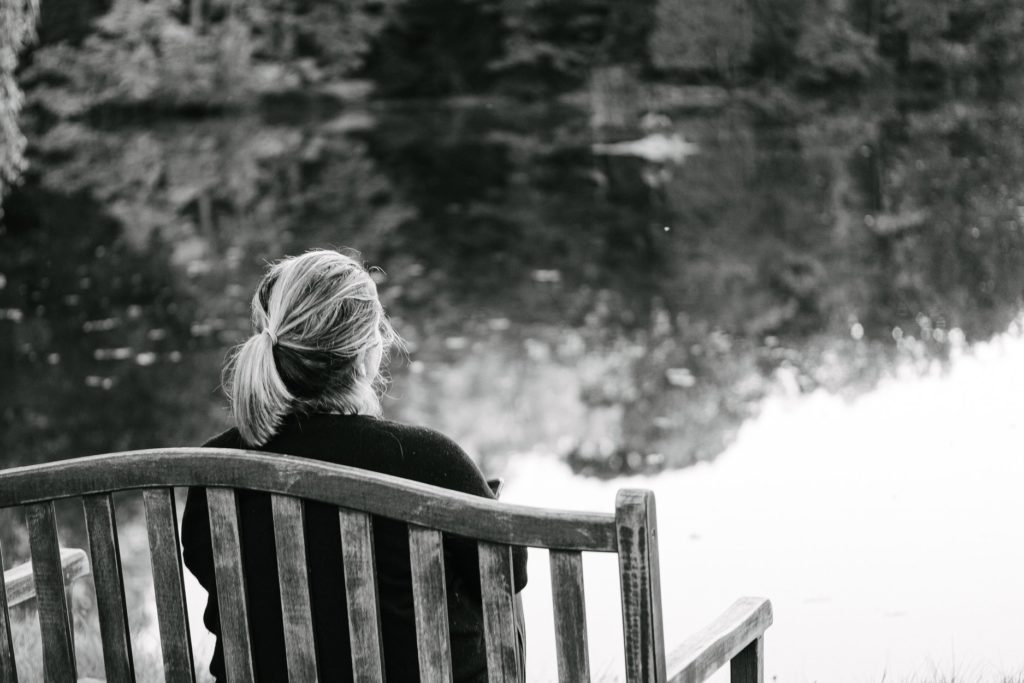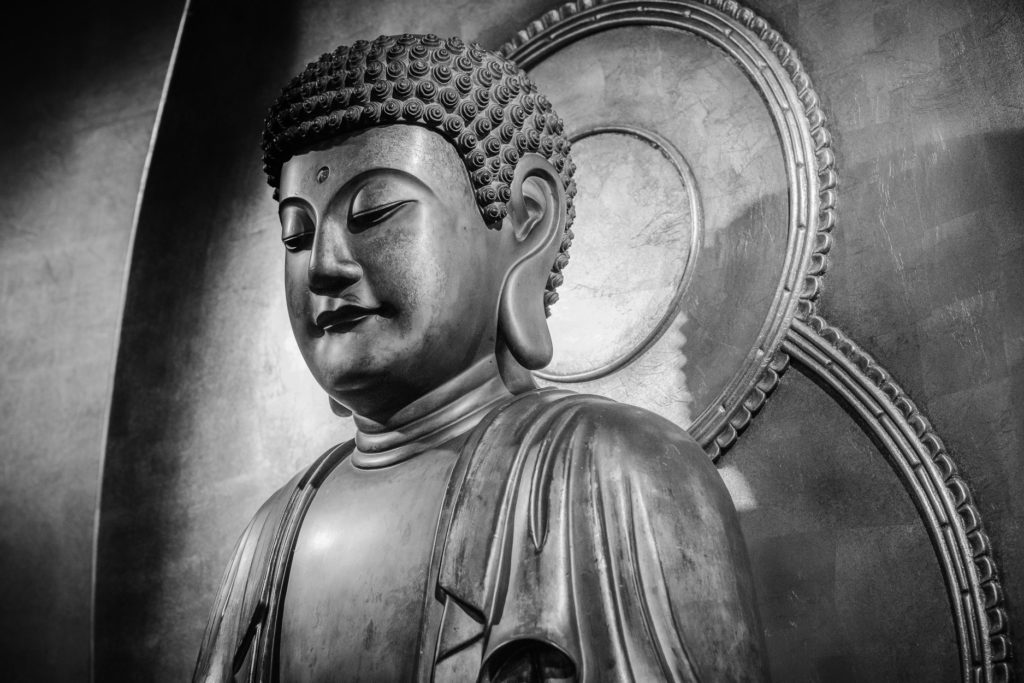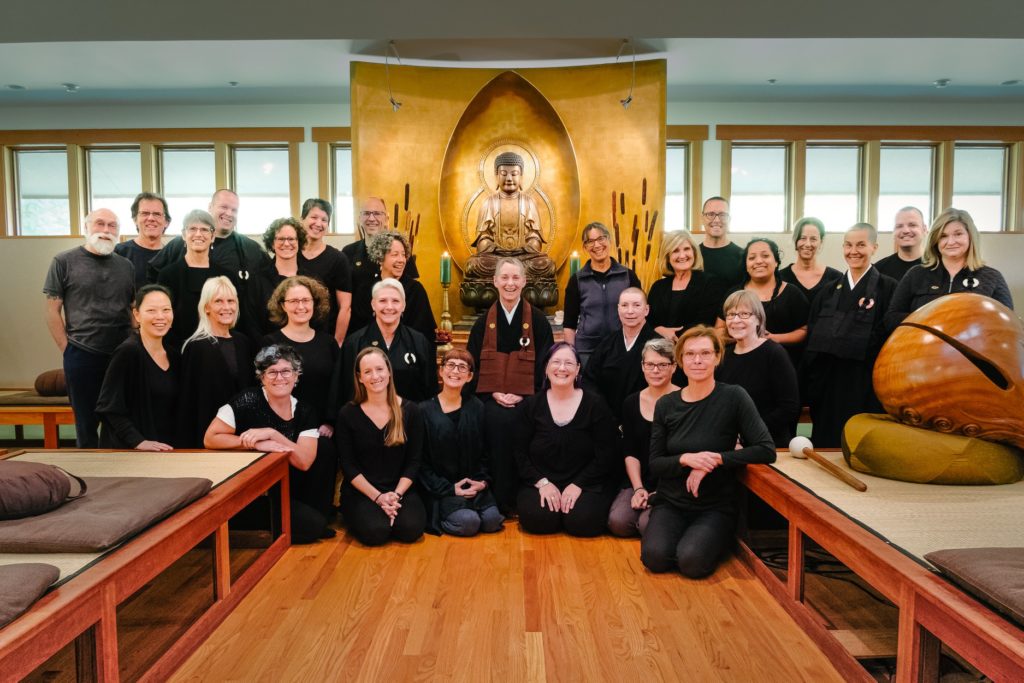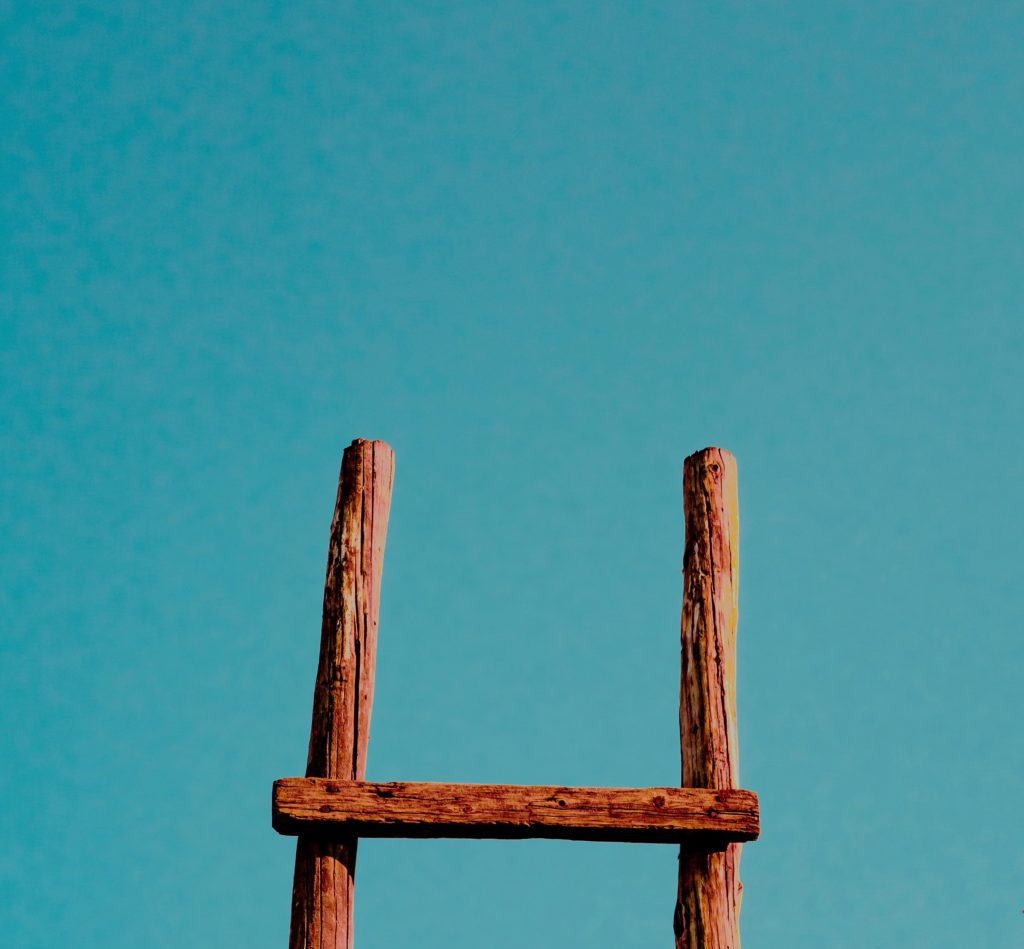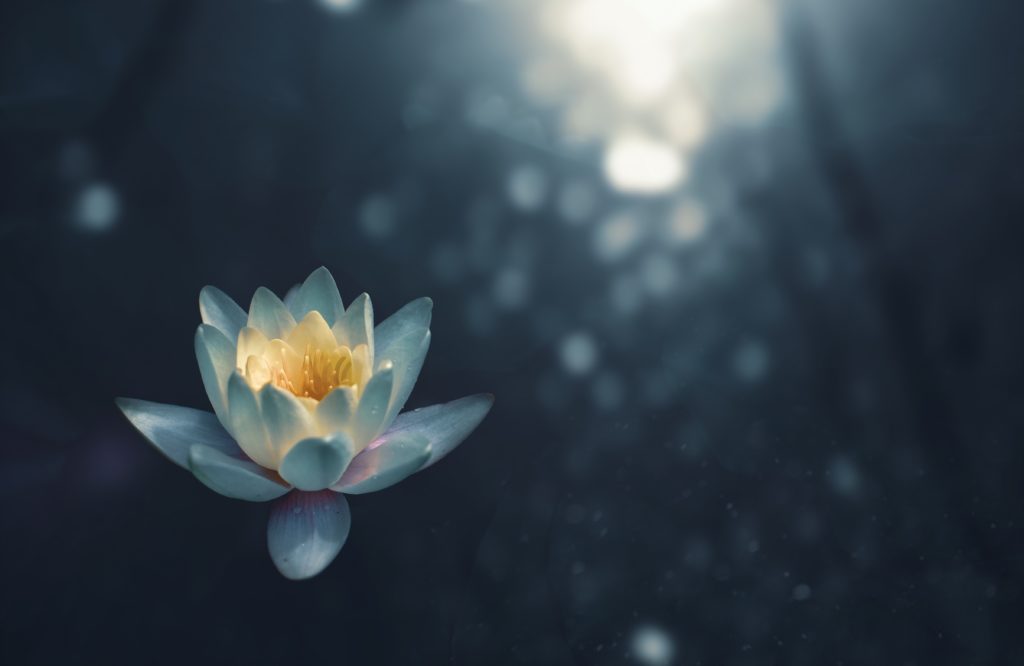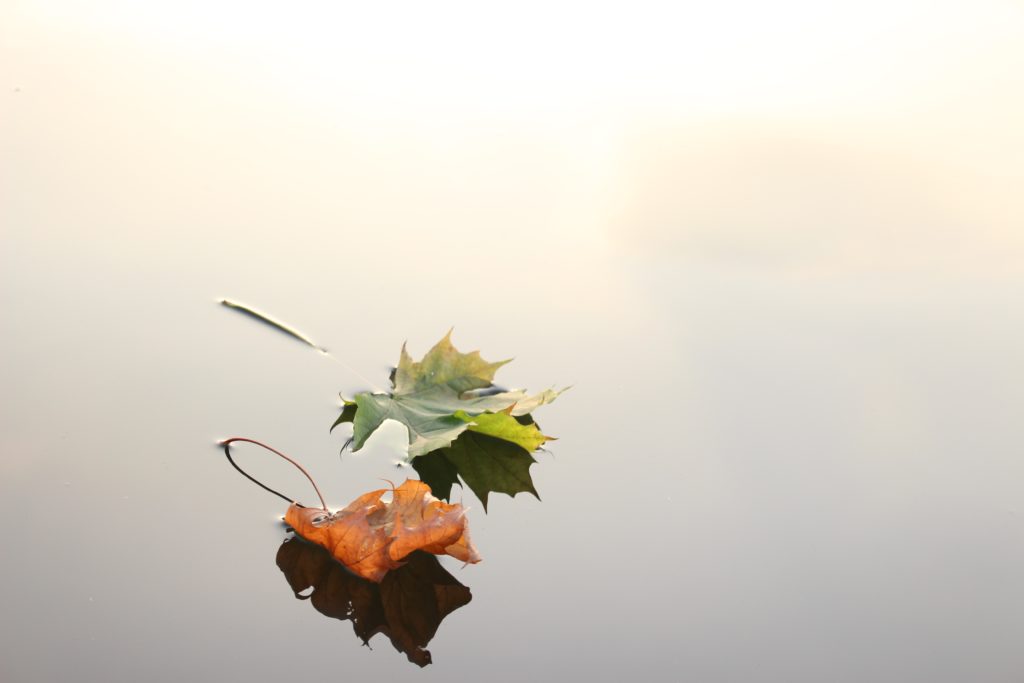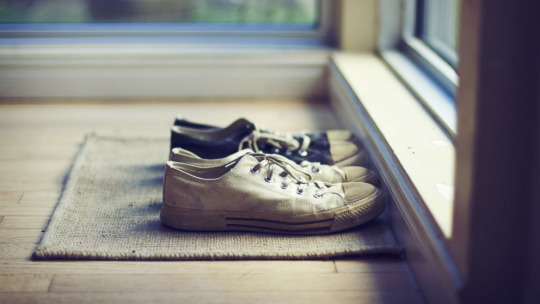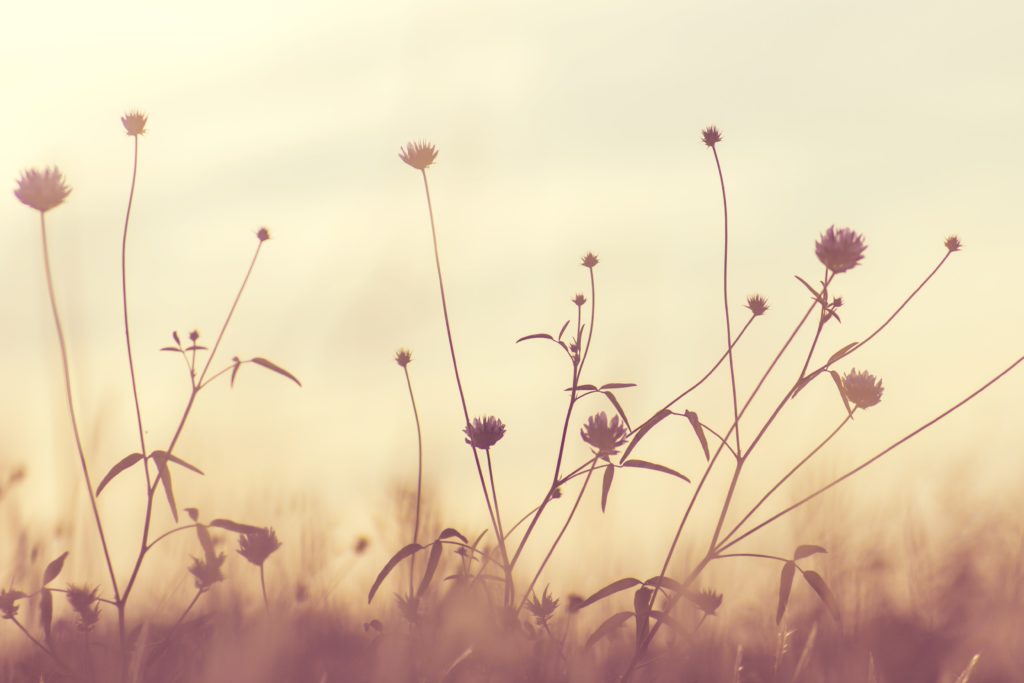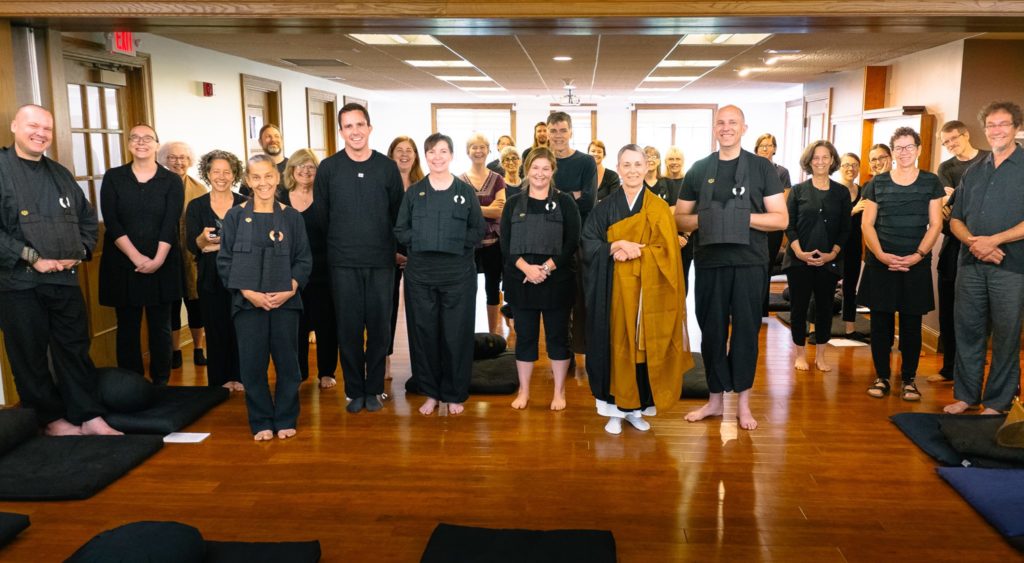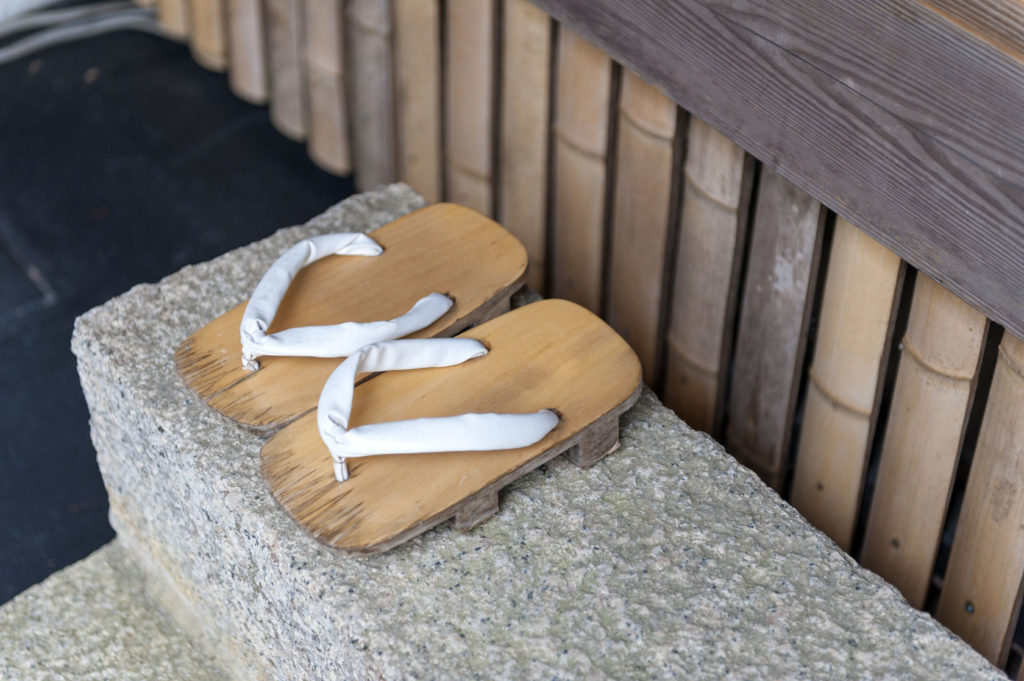
If you don’t see the Way,
you don’t see it even as you walk on it.
—Identity of Relative and Absolute
Over the last 20-plus years, I’ve heard my teacher tell a lot of stories. Actually, I’ve heard him tell one or two stories a lot of times. One of them is about Maezumi Roshi visiting a psychiatric hospital.
A member of the sangha was having trouble, and she had ended up in psychiatric care. When Maezumi heard about the powerful drugs the doctors were giving her, he said, “We have to go get her.” So they went to the hospital. Maezumi was wearing his traveling robes. There were many times Maezumi wore Western clothes, so for this trip, he must have thought the robes were appropriate.
They were standing near the day room talking to the staff about a discharge. The room was full of patients. Some were visibly disturbed or aggressive. Maezumi just stood there, a funny little man in a weird get-up, and didn’t say anything. One of the patients walked up to him carrying a chair. He signaled for Maezumi to sit down in it. Maezumi sat. Then the guy pulled up a chair and sat right next to him. And so did others. Soon Maezumi was sitting in a circle of psychiatric patients. Everyone was still and quiet, like it was nothing special.
When you walk the Way it is not near, it is not far
If you are deluded you are mountains and rivers away from it.
My teacher says that none of the staff or doctors even noticed what had happened.
“They didn’t see,” he would say everytime he told the story.
I used to wonder what it was that they didn’t see, and why. For awhile I thought he was saying that the whole event was come sort of glitch in the matrix, a hidden world on the other side of the space-time continuum. Zen students can be deluded by woo-woo like that.
“Oh,” I’d repeat, “they didn’t see!” still not seeing.
Not so long ago I realized what the doctors didn’t see: what was right in front of them. Reality. What most of us don’t see even as we walk on it.
In taking a seat and wearing robes, observe it for yourself later on. — Case 32, Book of Serenity
It used to be that if I was giving a talk or leading a workshop, I would put on a sleek J. Jill outfit and use a PowerPoint. I didn’t want to embarrass myself, or alarm anyone else, by doing anything Buddhist. I was an entertainer of sorts, and I was good at it. But entertainment doesn’t last. So I gave up trying to be popular and started going out in my robes to do what we do in Zen: sit. Instantly, it made everything easier. I didn’t have to make up what to say, and even strangers were consoled by it. I realized that it wasn’t me that made the difference, it was the robe.
In Zen, the teaching is said to be conveyed from teacher to student by “the robe and the bowl.”
The robe is the Dharma, or the teaching. The Dharma is as it is with nothing extra, nothing fabricated. It’s a powerful thing—what is—and it heals—when nothing is added to it—so maybe that’s why Maezumi wore his robe into the room where people were sick and suffering, their minds spinning in psychotic storms. It must have seemed like heaven to step into the quiet calm of his non-distracted presence, or samadhi. A passerby might have thought he was one more crazy person in a room of crazy people. And that would have been true too. Wherever he went, Maezumi left no trace of himself.
The robe was a signal that he was there to share the Dharma, pure presence, which shares itself when we don’t add our judgments to it.
The Great Way is not difficult;
it only avoids picking and choosing.
—Verses on the Faith Mind
I ran across a survey the other day asking “What is the greatest challenge Zen faces in the West today?” That’s a pretty common question among those who compare good versus bad, right versus wrong, past versus future. People have opinions. The truth, however, could not be clearer. The Way is not difficult. Reality is not hidden. There are no challenges to being present except the walls we erect by our judgmental mind, liking one thing and disliking another, cherishing our views of this or that.
It reminds me of Maezumi Roshi in the psychiatric ward. The doctors and nurses whizzing past, lost in their expertise, seeing only diagnoses and prognoses, cases and labels, in a room full of human beings just like them.
The more you talk and think about it,
The further astray you wander from the truth.
Stop talking and thinking
And there is nothing that you will not be able to know.
Beginner’s Mind One-Day Retreat
March 31, 2019
Hazy Moon Zen Center
Register by email
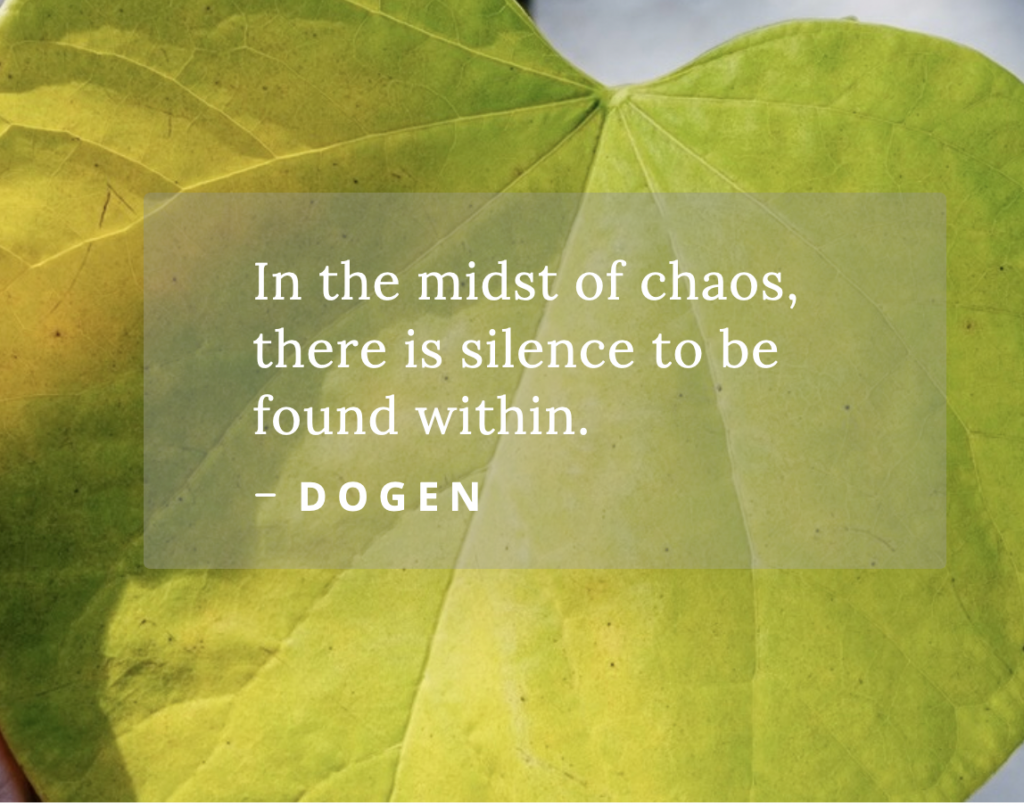 One night’s lodging brings rest to the body; two nights give peace to the heart; after three nights the drooping and depressed no longer know either trouble. If one asked the reason, the answer is simply—the place. —Po Chu-i (772-864)
One night’s lodging brings rest to the body; two nights give peace to the heart; after three nights the drooping and depressed no longer know either trouble. If one asked the reason, the answer is simply—the place. —Po Chu-i (772-864)